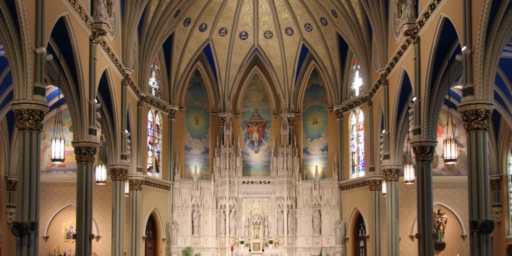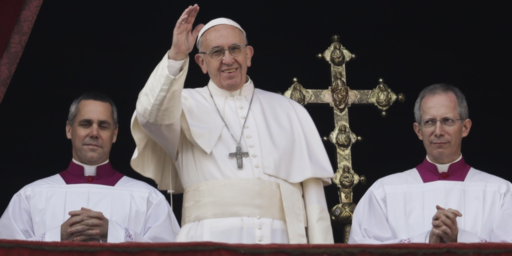Filipino Bishops Refrain from Advocating Resignation
Bishops Refuse to Ask Macapagal to Quit (FT)
Catholic bishops on Sunday refused to join mounting calls for the resignation of embattled Philippine President Gloria Macapagal Arroyo. They instead urged the creation of a fact-finding commission or initiation of impeachment proceedings to look into corruption and vote-rigging allegations against her.
“In the spirit of humility and truth, we declare our prayerfully discerned collective decision that we do not demand her resignation,” said Archbishop Fernando Capalla, president of the Catholic Bishops Conference of the Philippines, an organisation of more than 90 bishops.
While my general preference would be to reduce church influence in political affairs there, I’m at least heartened that the bishops struck the right note. Now, I only wish that a powerful voice would make the overarching case: constitutional procedures would strengthen democratic institutions, even if they may sometimes provide culpable leaders some political breathing room.
Mrs Macapagal’s critics are hesitant to file such a complaint because they fear they cannot muster enough numbers in the House of Representatives to endorse one to the Senate, which will try the case. Most House members belong to parties that are part of the ruling coalition supporting the president’s administration.
In the same vein, responsible public figures must explain that, if representatives obstruct, they can be punished in the next election cycle. I realize that my argument sounds awfully naive, given the cold realities of developing-world governance. But, at some point, people need to stand up for a healthy democratic culture and institutional recourse — things that would have far more long-term benefits and be far more revolutionary than just another extraconstitutional ouster.



